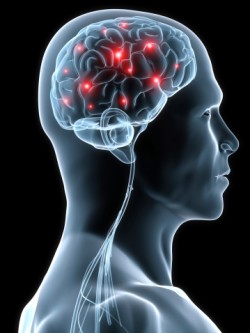How Does Methadone Treatment Help Eliminate Compulsive Drug-Using Behaviors?
As with any other form of addiction, compulsive drug-using behaviors most characterize an opiate addiction problem. Someone addicted to opiates will engage in compulsive drug use at the expense of all else and has essentially lost control over his or her power to choose. Breaking this pattern of behavior becomes the primary objective in addiction recovery.
Methadone treatment, an approach first developed in the 1960s, works well as a means for weaning the brain and body off addictive opiates, but can it help a person overcome the urge to engage in compulsive drug use? Ultimately, methadone encompasses a range of treatment interventions designed to help a person overcome the physical, psychological and behavioral aftereffects of opiate addiction.
The Aftereffects of Opiate Addiction
Physical Effects

Opiate abuse causes chemical imbalances in the brain, making it difficult to abstain from using them.
As of the first time using opiates, the physical effects of the drug start to alter the brain’s chemical pathways. Opiates in general have a similar chemical makeup as the brain’s own natural neurotransmitter substances, so the brain readily integrates opiates and their effects within its own chemical system.
According to the National Institute on Drug Abuse, these interactions set the stage for physical dependency to take shape as brain tolerance levels start to increase with continued drug use. All the while, opiate effects on neurotransmitter output cause damage to chemical-producing brain cells, which causes chemical imbalances to develop. In cases of chronic, long-term opiate abuse, the brain’s overall functional capacity sees considerable decline leaving a person at the mercy of the drug’s effects.
Behavioral Effects
The behavioral effects of opiate addiction develop out of the brain’s state of imbalance and dysfunction. In effect, chronic opiate use warps critical systems throughout the brain, most notably the reward system. The reward system regulates memory and learning processes and ultimately determines what motivates a person’s actions within any given day.
Over time, growing chemical imbalances skew reward system functions, at which point drug use and drug “highs” become primary motivations in a person’s life. These developments lie at the heart of compulsive opiate use as a person’s thinking, emotions and priorities start to obsess on getting and using drugs.
Methadone Treatment
As a treatment drug, methadone is a synthetic opiate so it’s able to soothe and support damaged brain cell processes, according to the National Institute of Justice. In this way, methadone treatment helps reduce the types of drug cravings and withdrawal effects that plague recovering addicts for months, and sometimes years into the recovery process.
While methadone plays a central role in methadone treatment, this approach combines medication treatment with psychosocial interventions, such as therapy, drug education and support group work. By combining medication treatment and psychosocial interventions, methadone treatment treats both the physical and behavioral aspects of addiction.
Overall, methadone does a good job at alleviating drug cravings and withdrawal effects; however, a person’s mind still thinks like an addict. Methadone treatment uses psychosocial interventions as a means to help addicts develop healthy coping strategies and behaviors for managing everyday life on a drug-free basis.
If you or someone you know struggles with an opiate addiction problem and are considering methadone treatment, please feel free to call our toll-free helpline at 800-678-5931(Paid Advertiser) to speak with one of our addictions specialists.